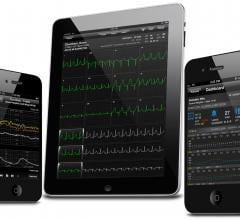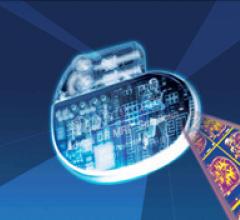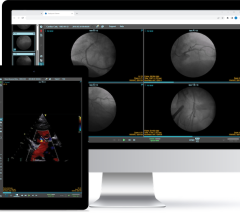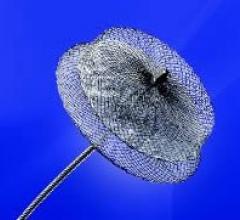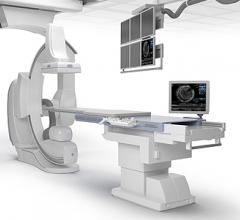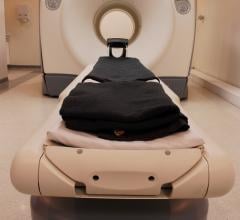
Boston Scientific received CE mark approval for the Promus Premier everolimus-eluting platinum chromium coronary stent system, the company's next-generation durable polymer drug-eluting stent (DES) technology. The Promus Premier is designed to improve DES performance with a new delivery system and redesigned stent architecture that improves radial, axial strength and deliverability.
As health systems are under increasing pressure to share data across systems to improve and expand their networks of care, CardioNet Inc. and AirStrip have entered into a partnership agreement to develop and co-market an integrated solution for mobile patient monitoring.
Medtronic Inc. announced the U.S. Food and Drug Administration (FDA) approval and U.S. launch of its Advisa DR MRI (magnetic resonance imaging) SureScan pacing system. The Advisa MRI system is Medtronic’s second-generation MR-conditional pacemaker and is the first system to combine the most advanced pacing technology with proven MRI access.
Cardiac PET/CT represents a major advancement in cardiovascular diagnostics, offering significant clinical and ...
Computed tomography (CT) radiation dose can result in unnecessarily high exposures, placing patients at increased risk of cancer and other conditions. Inappropriate radiation doses have raised public concerns and attracted national media attention.

Hospitals, clinics and office-based physicians are increasingly turning to electronic medical records (EMRs) as they prepare for the impact of the Patient Protection and Affordable Health Care (PPAHC) act, says Albert Woodard, CEO of Atlanta-based Business Computer Applications, a company devoted to digitizing medical records.
The Society of Interventional Radiology (SIR), an international organization of doctors, scientists and allied health professionals dedicated to improving public health through minimally invasive, image-guided treatments, joined as a member of the "Rethink Varicose Veins" coalition, an alliance of organizations united to drive public awareness of the risks of varicose veins and chronic venous insufficiency.
SPONSORED CONTENT — Studycast is a comprehensive imaging workflow system that allows healthcare professionals to work ...

St. Jude Medical Inc. announced enrollment of the first patient in the EnligHTN II trial. This post-market clinical study will further evaluate the safety and efficacy of the EnligHTN renal denervation system in patients with uncontrolled hypertension.
St. Jude Medical Inc announced the first patient implant of its 25 mm Portico Transcatheter Aortic Heart Valve using the Transfemoral Delivery System in its ongoing European trial. The Portico valve system offers a minimally invasive treatment option for patients with severe aortic stenosis — a narrowing of the aortic valve that obstructs blood flow from the heart.
Nuclear Medicine Information Systems LLC (NMIS) and BioDose LLC have been renamed and rebranded as ec2 Software Solutions, company officials announced.
Providing exceptional cardiovascular care for patients to achieve the best possible outcomes is the number one goal for ...
St. Jude Medical has issued a Class I recall for its Amplatzer TorqVue FX Delivery System used in transcatheter closure of atrial septal defects (ASDs). The company said in a small number of cases, the distal end of the core wire of the TorqVue FX system can fracture, which has the potential to cause serious adverse health consequences, including death.
Cloud computing has the potential to revolutionize healthcare administration by allowing providers to access information from a patient’s medical file at anytime from anywhere, and that means patients receive better and more efficient quality care.
Silicon Valley Medical Instruments Inc. (SVMI) was granted 510(k) market clearance from the U.S. Food and Drug Administration (FDA) in January for its HD-IVUS ultrasound imaging system.
Cardiac positron emission tomography (PET) is growing in popularity among cardiologists because it provides the ability ...
Vascular Nanotransfer Technologies (VNT) says it has developed the industry’s most versatile drug-coated-balloon (DCB) platform designed to deliver a wide variety of drugs for best-in-class DCB applications.
The U.S. Department of Veterans Affairs (VA) has selected HP Enterprise Services and subcontractor, WaveMark, to deliver a $543 million real-time location system (RTLS) solution to VA facilities across the nation.
While amyloid imaging may now be most associated with detecting plaques in the brain, it has the potential to change the way cardiac amyloidosis is diagnosed. According to first-of-its-kind research published in the February issue of The Journal of Nuclear Medicine, positron emission tomography (PET) with 11-C PIB can positively visualize amyloid deposits in the heart. Currently there is no noninvasive test available for specific diagnosis.

 February 18, 2013
February 18, 2013
